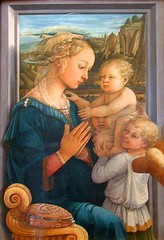Saturday, January 30, 2010
Book Review 2 – The Pagan Christ by Tom Harpur
I read this book a few years ago and was very surprised that a former Professor and Anglican priest would argue that Christianity is a synthesis of Ancient Egyptian and pagan mystery religions with a Jewish twist. It even reconciled me to Christianity a little, because I discovered that despite the overt suppression of Greek and Roman philosophy and the burning of pagan libraries by Christians, many of the ideas and myths of the ancient world in fact survived by being integrated into Christianity. It is a well researched book with good footnotes and an extensive bibliography that has provided me with lots of further reading by authors such as Bishop Spong, Robert Funk and the Jesus Seminar and Sir James Frazer (author of the seminal Golden Bough).
The theme of the book is complex but the main thrust is the incredible similarity that exists between Jesus and the many saviour gods that existed in the ancient world particularly the Egyptian God Horus, whom Harpur claims is the original archetypal Christos. The idea that a man-god who could be born of a virgin, perform miracles, suffer and die yet be resurrected to eternal life it seems did not originate with Jesus. Harpur believes that the truth and relevance of these tales have nothing whatever to do with actual happenings in history but everything to do with changing consciousness to “receive sublime truths accessible in no other way”. He means by way of symbols, allegories and myths.
Harpur believes Plato’s idea that we are all “sparks of divine fire struck off from the flint of the Eternal”, immortal souls clad in mortal bodies and that the divine is within all of us. He says that the ancient messiahs were symbolic sun figures who came not only each day with the sunrise and sunset, but were renewed through the seasons, the solstices and the equinoxes. Worshippers could take part in this renewal through mystery dramas and rituals and thereby awaken their own divinity. He believes that the sole and crucial difference between the ancient myths and Christianity is that Christianity eventually concentrated this endless universal concept into a single historical person, Jesus, and the unrepeatable events of his life.
In Harpur’s opinion, timeless myth had been misread as biography. Christianity took a tragically wrong turn at the end of the third century by denying and trying to destroy its pagan roots. People were then forced to look externally to a morally perfect and unreachable Saviour instead of looking within for the divine and understanding the true meaning of the cross as the symbol of spirit entering matter. Oddly enough, Jesus appears to says this in Luke 17:21 “for in fact the kingdom of God is within you.” It is fascinating stuff and I realised that in the end, perhaps it is just a matter of terminology that separates me from religion as I prefer to use the words nature, the universe and life-energy instead of the words god, divinity, and immortal soul.
Subscribe to:
Post Comments (Atom)



No comments:
Post a Comment